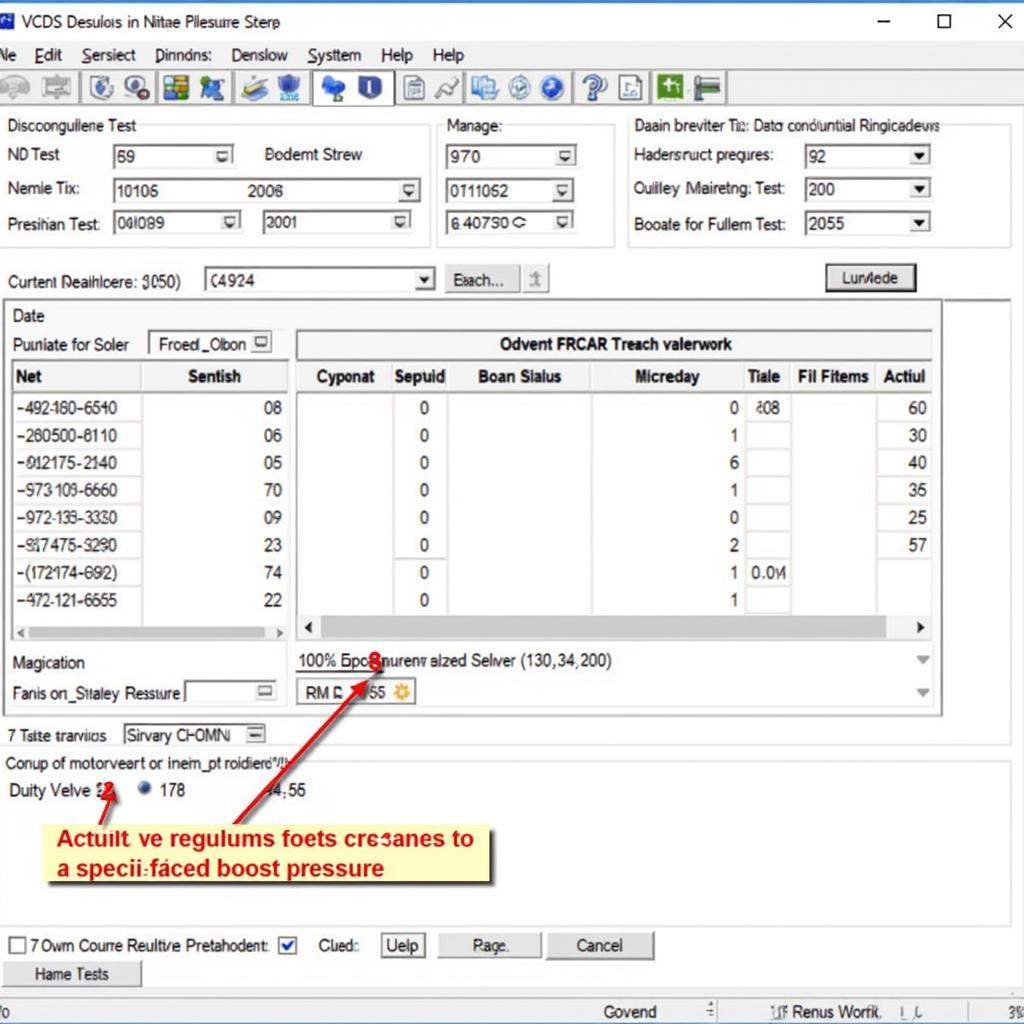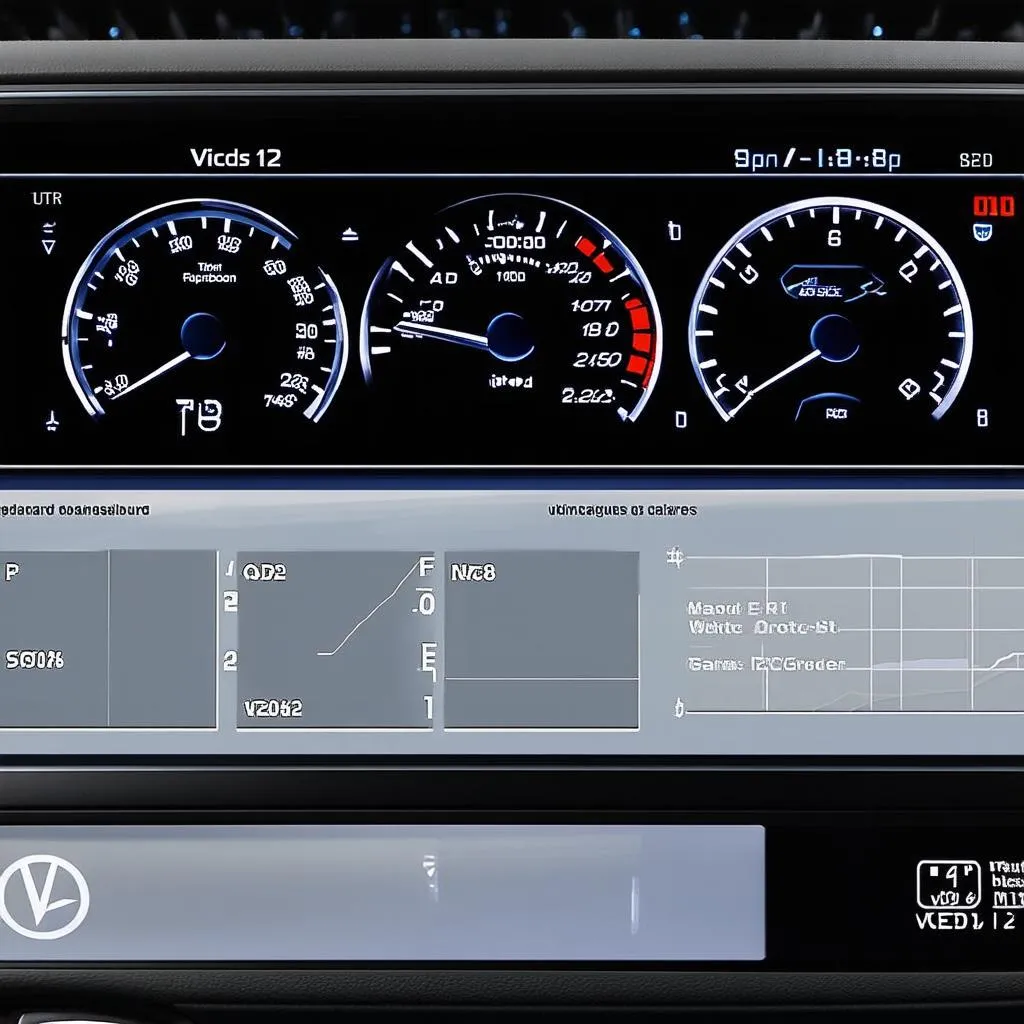Understanding the intricacies of your vehicle’s turbocharger system can be daunting. However, with the right tools and knowledge, diagnosing and troubleshooting issues becomes significantly more manageable. The VCDS N75 test is a crucial diagnostic procedure for identifying problems related to turbocharger performance, particularly in vehicles equipped with variable geometry turbochargers (VGTS). This article will delve into the details of the N75 valve, its function, common issues, and how to perform a VCDS N75 test.
The N75 valve, also known as the boost pressure control valve, is an integral part of the turbocharger system. It regulates the boost pressure by controlling the position of the turbocharger’s vanes or wastegate. The valve receives signals from the engine control unit (ECU) based on factors like engine speed, load, and throttle position. Malfunctioning N75 valves can lead to a variety of performance issues, including overboost, underboost, and limp mode. Identifying these issues accurately requires a thorough understanding of the VCDS N75 test. Similar to vcds turbo, the N75 plays a crucial role in the overall turbo system.
What is the N75 Valve and How Does it Work?
The N75 valve is an electronically controlled solenoid valve that modulates the pressure signal sent to the turbocharger actuator. This actuator, in turn, controls the position of the turbo’s vanes or wastegate, effectively regulating the amount of exhaust gas directed towards the turbine. By precisely controlling this flow, the N75 valve manages the boost pressure generated by the turbocharger.
When the ECU requests more boost, it sends a signal to the N75 valve, causing it to restrict the pressure to the actuator. This allows the actuator to move and adjust the vanes or wastegate, increasing boost pressure. Conversely, when less boost is required, the ECU signals the N75 valve to open, increasing the pressure to the actuator and reducing boost.
Common N75 Valve Issues and Symptoms
Several issues can arise with the N75 valve, leading to noticeable performance problems. A faulty N75 valve can cause overboost, resulting in excessive boost pressure that can damage the engine. Underboost, on the other hand, leads to reduced power and sluggish acceleration. Other symptoms include limp mode, where the ECU limits engine performance to protect it from further damage, and fluctuating boost pressure, causing erratic engine behavior.
 VCDS N75 Valve Location in a TDI Engine
VCDS N75 Valve Location in a TDI Engine
Performing the VCDS N75 Test
The VCDS (VAG-COM Diagnostic System) software provides a comprehensive suite of diagnostic tools, including a specific test for the N75 valve. This test allows you to check the valve’s functionality and identify potential issues. Here’s a step-by-step guide:
- Connect the VCDS interface to your vehicle’s OBD-II port.
- Turn the ignition on.
- Open the VCDS software and select the correct vehicle model.
- Navigate to the Engine module.
- Select Basic Settings.
- Choose the N75 test group.
- Activate the test and observe the specified measuring blocks.
The test results will indicate whether the N75 valve is functioning correctly. You should observe changes in the specified measuring blocks as the valve cycles through its operating range. If the values remain static or deviate significantly from the expected range, it indicates a problem with the N75 valve or its associated wiring. Checking for p0299 vcds can also provide valuable insights.
 VCDS N75 Test Results Display
VCDS N75 Test Results Display
Interpreting the VCDS N75 Test Results
Interpreting the VCDS N75 test results requires understanding the specified measuring blocks. Typically, these blocks display the duty cycle of the N75 valve, which represents the percentage of time the valve is energized. You’ll also see readings for actual and specified boost pressure. By comparing these values, you can determine if the N75 valve is responding correctly to the ECU’s commands. This is especially useful when dealing with a 02 tdi vcds engine.
What if the VCDS N75 Test Fails?
If the VCDS N75 test reveals a problem, there are several possible causes. The N75 valve itself may be faulty and require replacement. Other potential issues include vacuum leaks, wiring problems, or a malfunctioning ECU. Further diagnosis is crucial to pinpoint the exact cause of the problem before replacing any components. Understanding the function of a tester vcds can be beneficial in this process.
Conclusion
The VCDS N75 test is a valuable tool for diagnosing turbocharger-related problems. By understanding the function of the N75 valve and how to perform the test, you can identify and address issues effectively. This knowledge can save you time and money by avoiding unnecessary repairs and ensuring optimal vehicle performance. The VCDS N75 test is a crucial part of maintaining your vehicle’s turbocharger system. Using vcds wastegate test in conjunction can offer a complete picture of the turbo’s health.
FAQs
- What does the N75 valve do? The N75 valve controls the boost pressure generated by the turbocharger.
- What are the symptoms of a faulty N75 valve? Symptoms include overboost, underboost, limp mode, and fluctuating boost pressure.
- How do I perform a VCDS N75 test? Connect the VCDS interface, open the software, navigate to the Engine module, and select the N75 test group.
- What do the VCDS N75 test results mean? The results indicate whether the N75 valve is functioning correctly by comparing actual and specified boost pressure.
- What should I do if the VCDS N75 test fails? Further diagnosis is necessary to pinpoint the exact cause, which could be a faulty valve, vacuum leaks, wiring issues, or an ECU malfunction.
- Can I replace the N75 valve myself? Yes, replacement is generally straightforward, but proper diagnosis is crucial beforehand.
- How often should I test the N75 valve? Testing is recommended if you experience any turbocharger-related performance issues.
Need assistance? Contact us via Whatsapp: +1 (641) 206-8880, Email: CARDIAGTECH[email protected] or visit us at 276 Reock St, City of Orange, NJ 07050, United States. Our customer service team is available 24/7.

